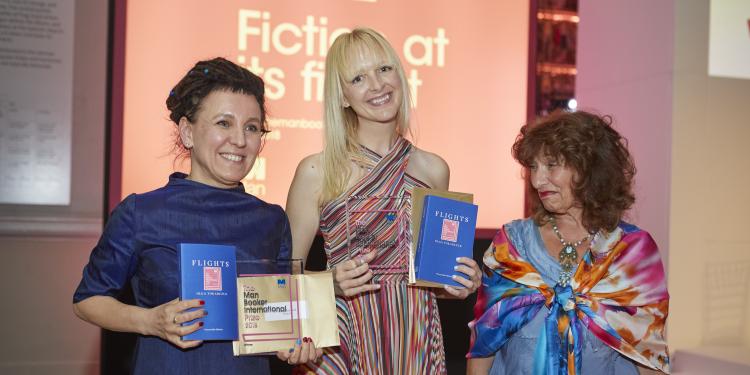
Translated by Jennifer Croft

Olga Tokarczuk and translator Jennifer Croft
Fully 11 years after it was published in Poland, Olga Tokarczuk’s Flights, a tale of time, space and the psychology of travelling, translated by Jennifer Crofts, won the prize.
Tokarczuk, a feminist atheist with progressive politics, has been attacked by culturally conservative elements in Poland as being unpatriotic – a charge forcefully rebutted. Her early training as a clinical psychologist informs her fiction, adding to the challenge faced by her American translator Jennifer Croft – an author in her own right. It was, said Croft, Tokarczuk’s ‘ability to distil the essence of a person’ that first made her want to translate her work. Endorsing the Man Booker International Prize judges’ opinion, Tokarczuk was subsequently awarded the Nobel Prize in Literature.
Translated by Jennifer Croft
Translated by Jonathan Wright
Translated by Camilo A. Ramirez
By Han Kang
Translated by Deborah Smith
Translated by Ottilie Mulzet George Szirtes John Batki
Translated by Frank Wynne




